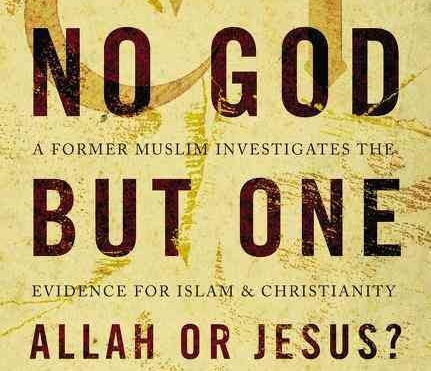No God But One, by Nabeel Qureshi
The force of Qureshi’s argument comes from applying the litmus test of history to the claims of each religion.
18 MAY 2017 · 16:00 CET

Nabeel Qureshi has proven himself to be a faithful guide through the murky waters of Muslim-Christian dialogue.
In Seeking Allah, Finding Jesus, he explored his encounter with the Christian gospel as a devout Muslim, and being drawn to it through the compelling witness of a friend. In No God But One, Qureshi examines conflicting truth claims of Christianity and Islam.
He strikes a balance between being accessible to the common reader and dealing critically with issues of complexity and academic debate. Qureshi’s strength is his ability to identify places of contradistinction, distill them to their foundational premises, and focus on examining the grounds for these premises.
The force of Qureshi’s argument comes from applying the litmus test of history to the claims of each religion.
Qureshi writes for two types of readers. First are those who are in the “throes of their search”. For the Muslim or the agnostic who wants to look at the issues, this book is an opportunity to wrestle with the primary questions of the debate while avoiding the inflammatory rhetoric that so often muddies the conversation.
The second reader Qureshi has in mind is the Christian who has Muslim friends or neighbours. His book provides a weighty introduction to the many issues of Christian-Muslim debate and guides the reader to take a biblically and historically informed stance while still maintaining an irenic tone in their dialogue.
The book is divided into two sections. The first answers the question: “Are Islam and Christianity really all that different?” Qureshi writes with a tone that is intellectually and culturally respectful of Muslim people, but he does not pull any punches.
Interweaving stories, history, and sacred texts, he compares Islam and Christianity. Qureshi contrasts the way of Sharia to the way of Jesus, the revelation of Allah in the Quran to the revelation of God through Christ, Tawheed (Islamic mono-theism) to the Trinity, the Quran to the Bible, and finally Jihad to the Crusades.
The second section asks: “Can we know whether Islam or Christianity is true?” Qureshi introduces this section by encouraging his readers to make an honest assessment of their faith.
(Assessing one’s faith honestly) requires one to be introspective and self-critical at frequent intervals. Although we can never completely overcome our biases, the most important step we can take is to pursue fair-mindedness with intentionality. While considering the data, we need to repeatedly ask ourselves the question: “Would an objective observer find the arguments compelling?”
From this place of attempted objectivity, Qureshi seeks to put Islam and Christianity on a level playing field by asking, “At minimum, what would need to be true in order for the Christian (and conversely the Muslim) message to be true?”
He distills the many issues of religious debate into three primary truth claims of Christianity and two primary truth claims of Islam. For Christianity to be true: 1) Jesus has to have died by crucifixion; 2) he has to have been resurrected from the dead; 3) he has to have claimed to be God. For Islam to be true: 1) Mohamed’s prophetic authority has to be demonstrated; 2) The divine inspiration of the Quran has to be confirmed. Qureshi spends the latter half of No God But One examining arguments and rebuttals for each of these five truth claims.
No God But One is a worthy contribution to the ongoing Muslim-Christian dialogue. Anyone genuinely willing to examine the reasons for their faith will be rewarded in joining Qureshi on this journey of investigation and discovery.
A.C. Hawthorne. This article was published with permission of Solas magazine. Solas is published quarterly in the U.K. Click here to learn more or subscribe.
Published in: Evangelical Focus - Solas - No God But One, by Nabeel Qureshi
